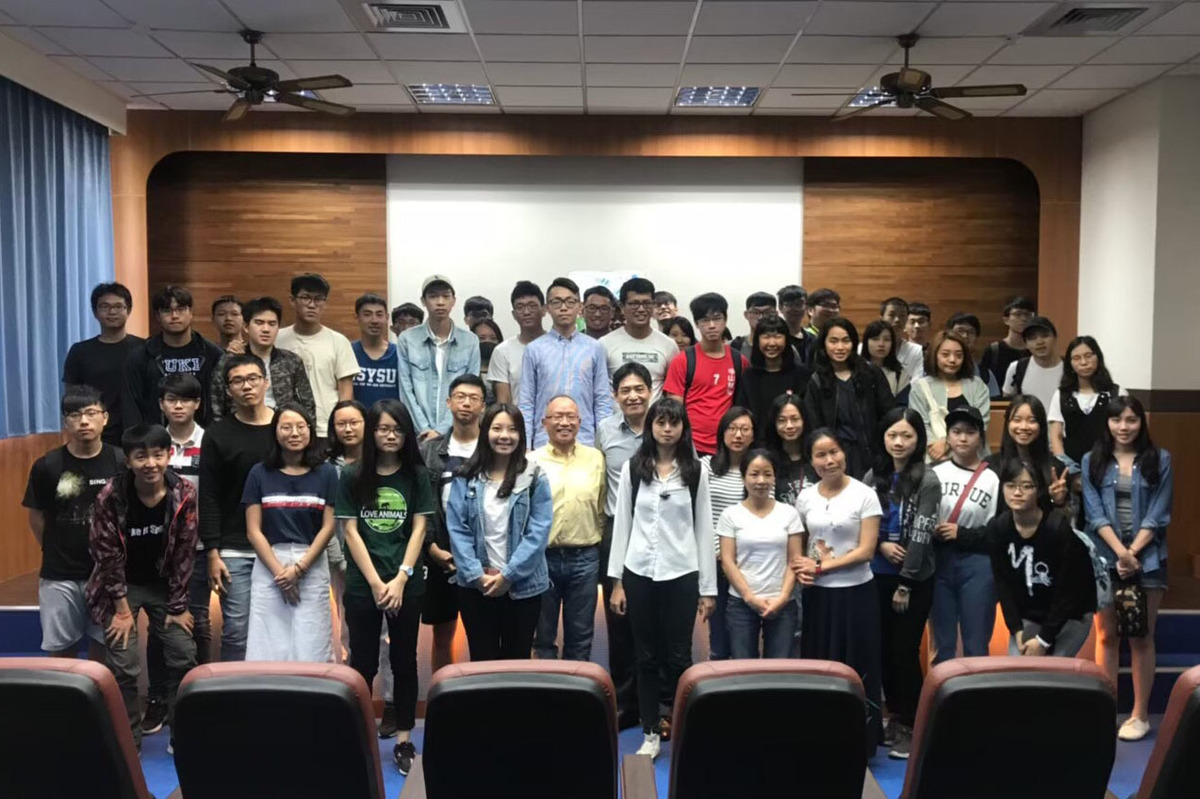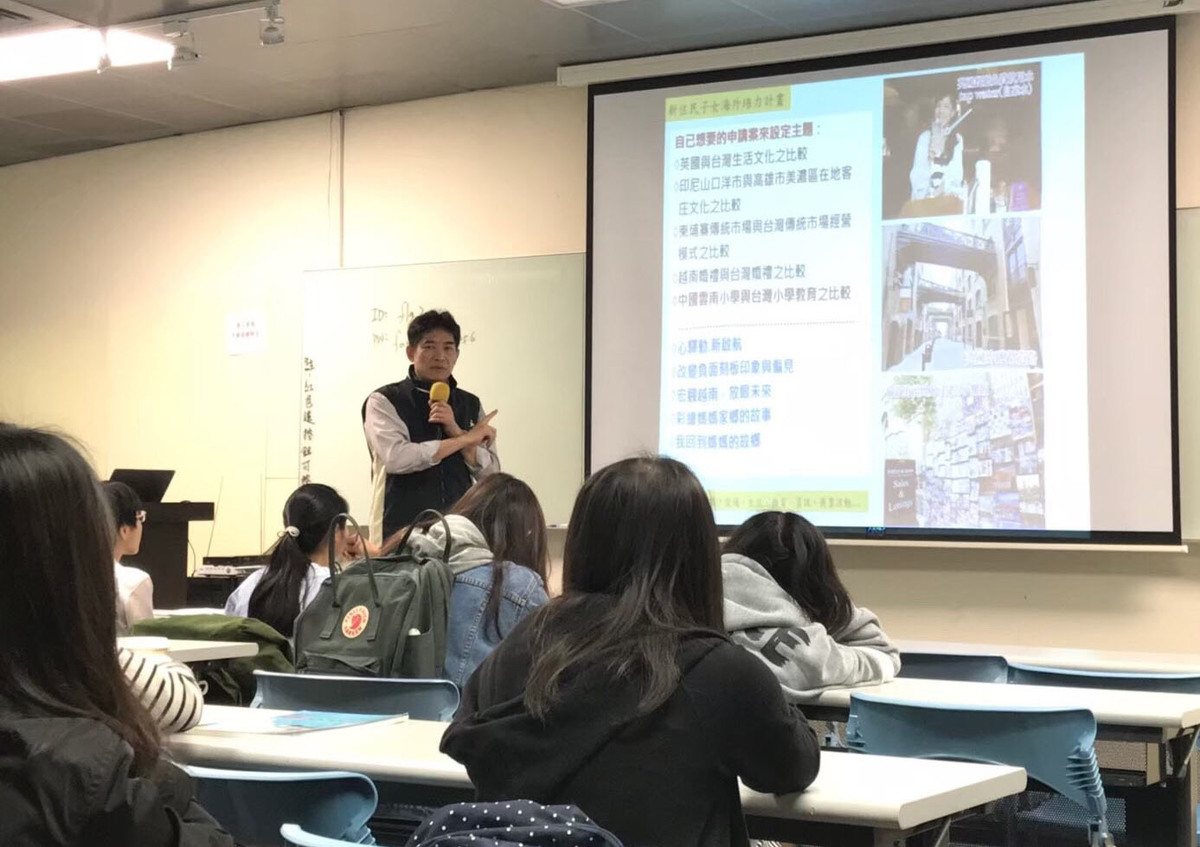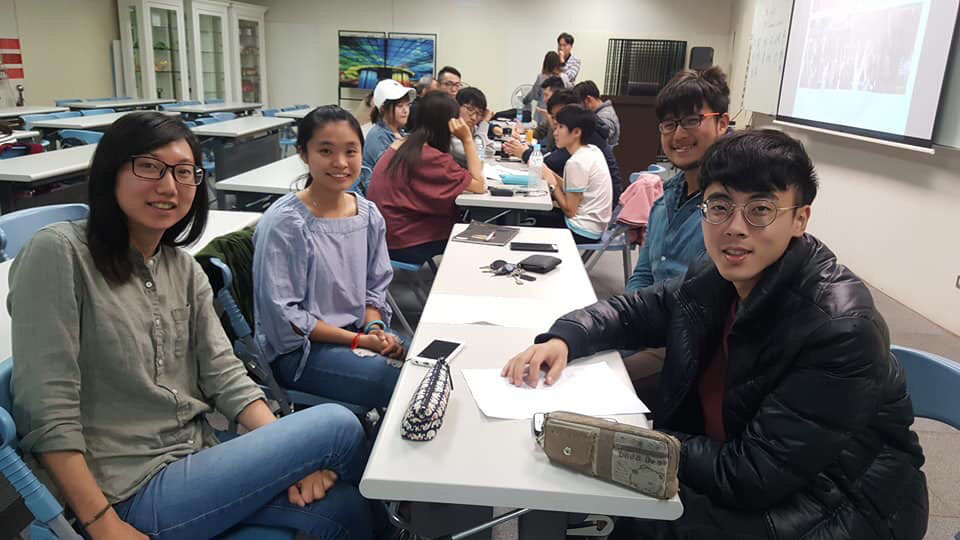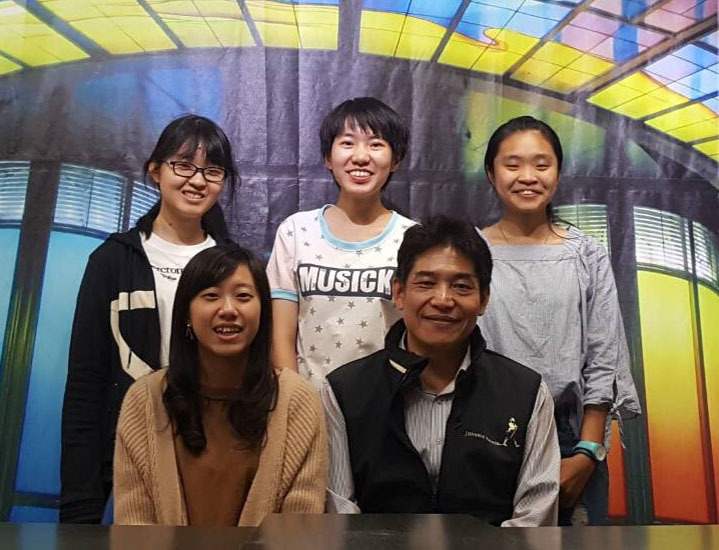NSYSU helps new immigrant families join Overseas Training Project




[Provided by Si-Wan College] Assistant Professor Chin-Song Ku of the Center for Service-Learning Education, Si-Wan College, NSYSU, started a new service learning course – Dream Building Project to guide students to help families of new and second-generation families apply for 2019 New Immigrant Children Overseas Training Project. Seven families successfully obtained financial support from the Immigration Agency, Ministry of Interior. The students and teachers obtained great results promoting social service in line with the New Southbound Policy.
According to the statistics of the Ministry of Interior, the number of new immigrants in Taiwan is over 540,000 and there are more than 410,000 new immigrant children. Chin-Song Ku has been organizing service learning courses since 2010 to help children from new immigrant families with insufficient education, skills and confidence. He guides the students to provide them with assistance after school, show more care and attention, so that the children from new immigrant families can keep up with schoolwork. This can prevent future social problems stemming from negative interpersonal relationships being the result of learning difficulties.
In recent years, Assistant Professor Ku started the Dream Building Project – a service learning course to guide students on the interaction with new immigrants, and help them and their children in Central and Southern Taiwan apply for the Dream Building Project or the Overseas Training Project. When new immigrants’ children travel to the countries of origin of their parents and immerse in the local culture, they get to understand the strengths of their language and culture and build a bridge between the two countries. This time, among 7 families who obtained financial assistance, there were second-generation immigrants who compared the culture of Taiwan to that of Cambodia from different perspectives, while some new immigrants’ children searched for the authentic taste of Vietnam through food supply chain, some investigated on the connection between the food of Meixian District in Guangdong Province, China, and Hakka delicacies in Meinong, Taiwan, others wanted to document the Indonesian culture in picture books.
For example, every summer, second-generation immigrant Fang-I Lai and her Indonesian mother Ching-Ying Hsu visit Hsu’s hometown on the Sulawesi island. Lai experiences her mother’s childhood, attending Catholic Church events, listening to the radio broadcast her mother used to listen to as a child, going to the traditional market her grandmother used to take her mother to, and visiting the beach where her mother would go to when she was happy or sad. Lai and her mother started a program on Indonesian folk tales in the National Education Radio; she was also invited to Televisi Republik Indonesia to talk about Taiwanese culture and her experiences of growing up.
With the wave of globalization and the steady increase of international and Mainland Chinese-Taiwanese marriages, the society and the culture become more and more diverse. Ku said, that the Overseas Strength Project helped immigrant families and their children to make dreams come true, exchange culture and fostered their language abilities. The students of the course could also gain further understanding of new and second-generation immigrants and multiculturalism, and enhance their problem-solving abilities. Assistant Professor Ku believes that the students of NSYSU are hungry for knowledge and show a great passion for social engagement. He hopes that in the future, more people will want to assist new and second-generation immigrant families, help them gain confidence, build a stable life in Taiwan, and support their long-term development in the society.
(edited by Public Affairs Division))
According to the statistics of the Ministry of Interior, the number of new immigrants in Taiwan is over 540,000 and there are more than 410,000 new immigrant children. Chin-Song Ku has been organizing service learning courses since 2010 to help children from new immigrant families with insufficient education, skills and confidence. He guides the students to provide them with assistance after school, show more care and attention, so that the children from new immigrant families can keep up with schoolwork. This can prevent future social problems stemming from negative interpersonal relationships being the result of learning difficulties.
In recent years, Assistant Professor Ku started the Dream Building Project – a service learning course to guide students on the interaction with new immigrants, and help them and their children in Central and Southern Taiwan apply for the Dream Building Project or the Overseas Training Project. When new immigrants’ children travel to the countries of origin of their parents and immerse in the local culture, they get to understand the strengths of their language and culture and build a bridge between the two countries. This time, among 7 families who obtained financial assistance, there were second-generation immigrants who compared the culture of Taiwan to that of Cambodia from different perspectives, while some new immigrants’ children searched for the authentic taste of Vietnam through food supply chain, some investigated on the connection between the food of Meixian District in Guangdong Province, China, and Hakka delicacies in Meinong, Taiwan, others wanted to document the Indonesian culture in picture books.
For example, every summer, second-generation immigrant Fang-I Lai and her Indonesian mother Ching-Ying Hsu visit Hsu’s hometown on the Sulawesi island. Lai experiences her mother’s childhood, attending Catholic Church events, listening to the radio broadcast her mother used to listen to as a child, going to the traditional market her grandmother used to take her mother to, and visiting the beach where her mother would go to when she was happy or sad. Lai and her mother started a program on Indonesian folk tales in the National Education Radio; she was also invited to Televisi Republik Indonesia to talk about Taiwanese culture and her experiences of growing up.
With the wave of globalization and the steady increase of international and Mainland Chinese-Taiwanese marriages, the society and the culture become more and more diverse. Ku said, that the Overseas Strength Project helped immigrant families and their children to make dreams come true, exchange culture and fostered their language abilities. The students of the course could also gain further understanding of new and second-generation immigrants and multiculturalism, and enhance their problem-solving abilities. Assistant Professor Ku believes that the students of NSYSU are hungry for knowledge and show a great passion for social engagement. He hopes that in the future, more people will want to assist new and second-generation immigrant families, help them gain confidence, build a stable life in Taiwan, and support their long-term development in the society.
(edited by Public Affairs Division))
Click Num:
Share
